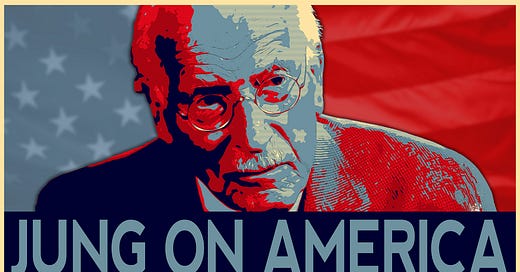Jung on America: the Illusion of Freedom
Jung on the herd psychology and heroic ideal of the American psyche
We tend to think of America as the home of individualism. Jung couldn’t disagree more. In a 1931 article, he shares his insights into the American psyche and what we find is not America “the great land of freedom and individualism” but the opposite — something which Jung describes as “positively terrifying”.
But he doesn’t just expose the mirage of freed…
Keep reading with a 7-day free trial
Subscribe to The Living Philosophy to keep reading this post and get 7 days of free access to the full post archives.




